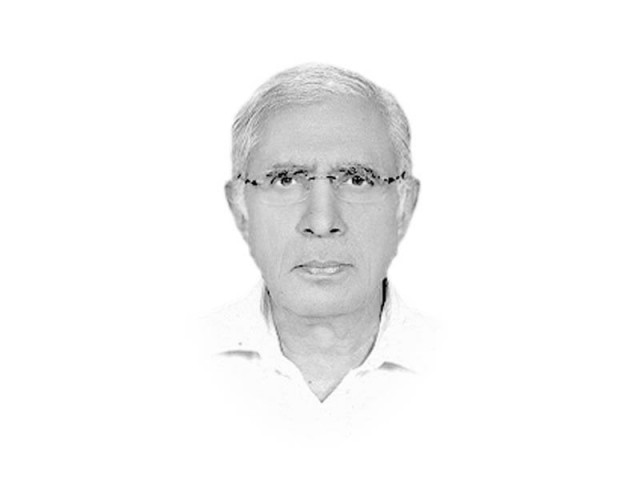Filibuster?
The demand that the overseas Pakistanis be given voting rights is not only unreasonable but impractical as well

The writer served as executive editor of The Express Tribune from 2009 to 2014
It is not clear whether the PTI move is dictated by some genuine inadequacies in the bill or the move is simply to filibuster anticipating the fall of the PML-N government or at least the ouster of Prime Minister Nawaz Sharif.
The motives do appear suspect as the PTI has conditioned its consent to the Bill to the acceptance, at this late hour, of four of its demands that clearly appear too unreasonable.
There is no way the Election Commission of Pakistan can be reconstituted without a constitutional amendment. And the demand that the caretaker governments be formed in consultation with all the political parties represented in parliament and not by consultation between the leader of house and the leader of the opposition alone is impractical.
There is no way consensus caretakers could be formed in time with even those that have only one seat in the National Assembly holding veto-like power. Of course one did observe abuse of the principle in vogue. Perhaps a way out could be found by inviting the first four parties that had polled the most votes in the last general election to choose the caretakers, through consensus after due consultations.
The demand that the overseas Pakistanis be given voting rights is not only unreasonable but impractical as well. There is no country practising parliamentary system of governance that has given this right to its citizens that have migrated to other countries.
One can submit a long list why this is not practical. For example, most overseas Pakistanis work in countries where politics is banned and if the voters are invited to Pakistani embassies then perhaps only those would be able to reach the polling stations that live in and around the cities where these embassies are located. And how would the candidates conduct canvassing?
The argument that they be given voting rights because they send so many billions to Pakistan every year is an argument that needs to be examined a bit closely. It is not possible to prove it but the suspicion is that a large part of these remittances is made up of black money sent abroad through Hawala and Hundi by those who indulge in corrupt practices. This is the process that is followed by the corrupt to whiten their ill-gotten money.
Biometric confirmation of voters and using Electronic Voting Machines (EVM) for casting votes are reasonable demands but NADRA does not have the capacity to do the job efficiently and in time and on the hand even in India where the EVM has been in use for some years is finding faults in the process. One machine on being tested recently is said to have rang BJP no matter which button you pressed.
Where the PTI has failed miserably is on the matter of electoral expenses. Its members in the committee seem too satisfied with the substantial increases in the election expenses limits for both the National Assembly’s and provincial assemblies’ seats (to Rs4 million and Rs2m from Rs1.5m and Rs1, respectively) and also seem too happy that they would not face immediate disqualification for submitting a false statement of election expenses or wealth statement.
The ECP according to the draft bill must refer such cases to the sessions court, which may allow such members to continue their membership until the exhaustion of all appeals.
This has transformed the election system itself into what is called the mother of all corruption. And knowing very well that submitting false election expenses statements would not create any immediate problems for them, well-endowed candidates invariably indulge in extravagant campaigning.
The draft bill also does not address the issue of political monopolies or prescribe any measures that can dilute control of some families over political parties. And it allows indirect elections to the Senate, which have the potential to allow party leaders to induct members based on nepotism.
Published in The Express Tribune, July 22nd, 2017.
Like Opinion & Editorial on Facebook, follow @ETOpEd on Twitter to receive all updates on all our daily pieces.













COMMENTS
Comments are moderated and generally will be posted if they are on-topic and not abusive.
For more information, please see our Comments FAQ